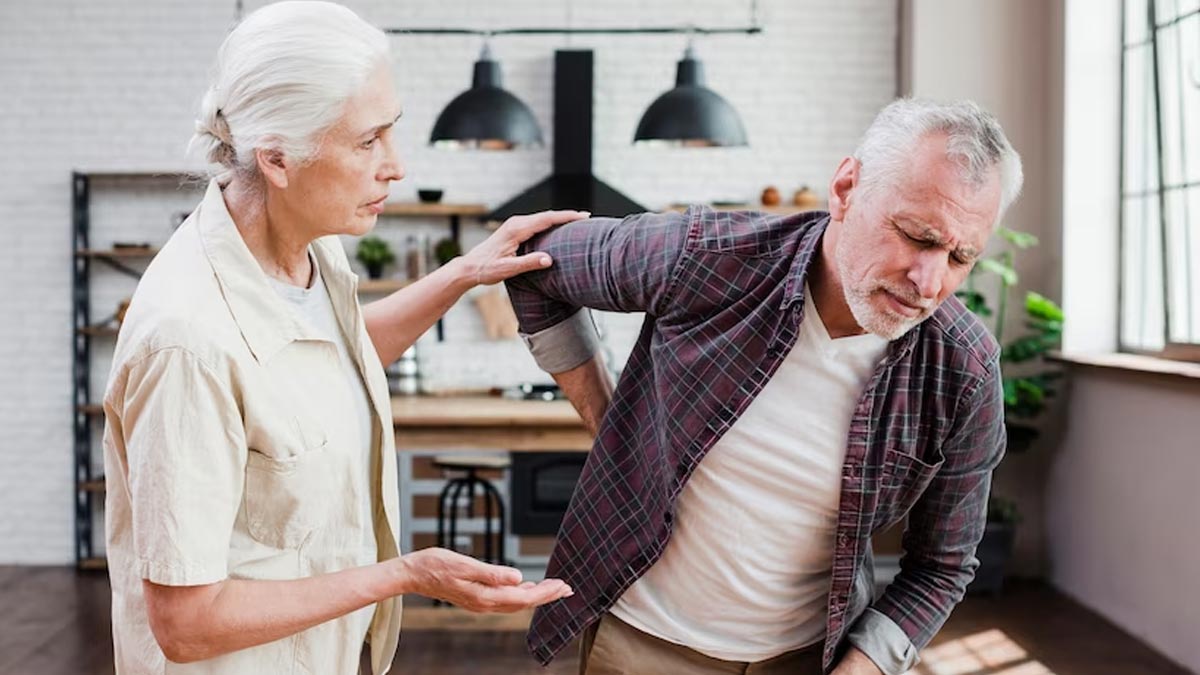
Have you ever wondered what happens to your bones as you get older? From childhood to adulthood and beyond, our bones play a crucial role in supporting our bodies and enabling movement. But as the years go by, changes occur that can impact the strength, density, and overall health of our bones. Dr Parag Sancheti, Orthopaedic Surgeon, Chairman, Sancheti Hospital, sheds light on the dynamics of bone health as we grow older.
Dr Sancheti said, “As you age, your bones undergo various changes and adaptations. These changes are part of the natural ageing process and can have an impact on your bone health and overall well-being.” According to the Therapeutic Advances in Musculoskeletal Disease, age-related changes in the bone's composition, structure, and function increase the risk of osteoporosis.
Effects Of Ageing On Bones

Bone Density
One of the most significant changes in ageing bones is the gradual loss of bone density, a condition known as osteoporosis. Dr Sancheti said, “Osteoporosis weakens the bones and makes them more prone to fractures. This loss of bone density is more common in women after menopause but can also affect men.” He added that reduced levels of oestrogen and testosterone play a role in this process.
Bone Remodelling
Dr Sancheti said, “Your bones undergo a process called remodelling throughout your life, which involves the breakdown of old bone tissue and the formation of new bone tissue.” As you age, this remodelling process becomes less efficient, resulting in a relative imbalance between bone resorption (breakdown) and bone formation. This can lead to a net loss of bone mass over time.
Also Read: Osteoporosis During Pregnancy: Expert Lists Ways To Promote Bone Health
Bone Strength
Ageing bones tend to become less dense and more brittle, which makes them more susceptible to fractures. The structural integrity of the bones diminishes and the network of proteins and minerals that give bones strength and flexibility becomes compromised.

Changes In The Joints
Ageing can also affect the joints, which are the points where two or more bones meet. Joint cartilage, which provides cushioning and facilitates smooth movement may deteriorate over time. This can lead to conditions like osteoarthritis, characterised by joint pain, stiffness, and reduced mobility.
Calcium Regulation
Calcium is essential for bone health, and as you age, your body's ability to absorb and regulate calcium may decline. This can further contribute to bone loss and increase the risk of fractures.
Hormonal Changes
Hormones are essential for preserving bone health. As you age, hormonal changes, such as the decline in oestrogen and testosterone levels can affect bone metabolism. These hormonal imbalances can accelerate bone loss and increase the risk of osteoporosis.
Also Read: 7 Morning Rituals You Should Practice To Balance Your Hormones
Muscle-Bone Interaction
Strong muscles help support and protect the bones. However, a condition called sarcopenia causes muscle mass to decrease with age. Reduced muscle strength and mass can lead to decreased physical activity and potentially contribute to bone loss and frailty.

Healing Process
The healing process for fractures may take longer as you age. Your bones may be more vulnerable to injury and the regeneration process may be slower due to reduced cell function and decreased blood supply to the bones.
Posture Changes
Changes in bone density, muscle strength, and joint health can affect your posture as you get older. These changes can lead to a stooped or hunched posture, making you more prone to falls and fractures.
Bottomline
Dr Sancheti concluded, “It's important to note that while these age-related changes are common, they are not inevitable. It is important to adopt a healthy lifestyle to maintain bone health as you age. Regular weight-bearing exercises, such as walking or strength training, can help stimulate bone growth and improve muscle strength. It's also critical to eat a balanced diet that's high in calcium, vitamin D, and other vital nutrients. Also, avoiding smoking and excessive alcohol consumption can contribute to better bone health.”
Disclaimer
The information in this article is provided by a registered healthcare expert, however, we advise you to consult your expert for a diagnosis tailored to your needs.







